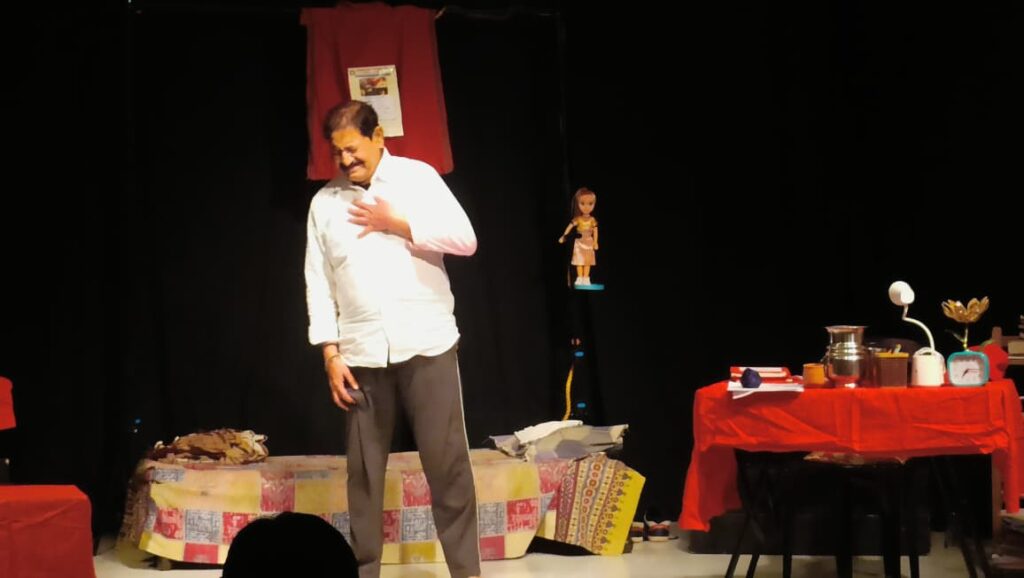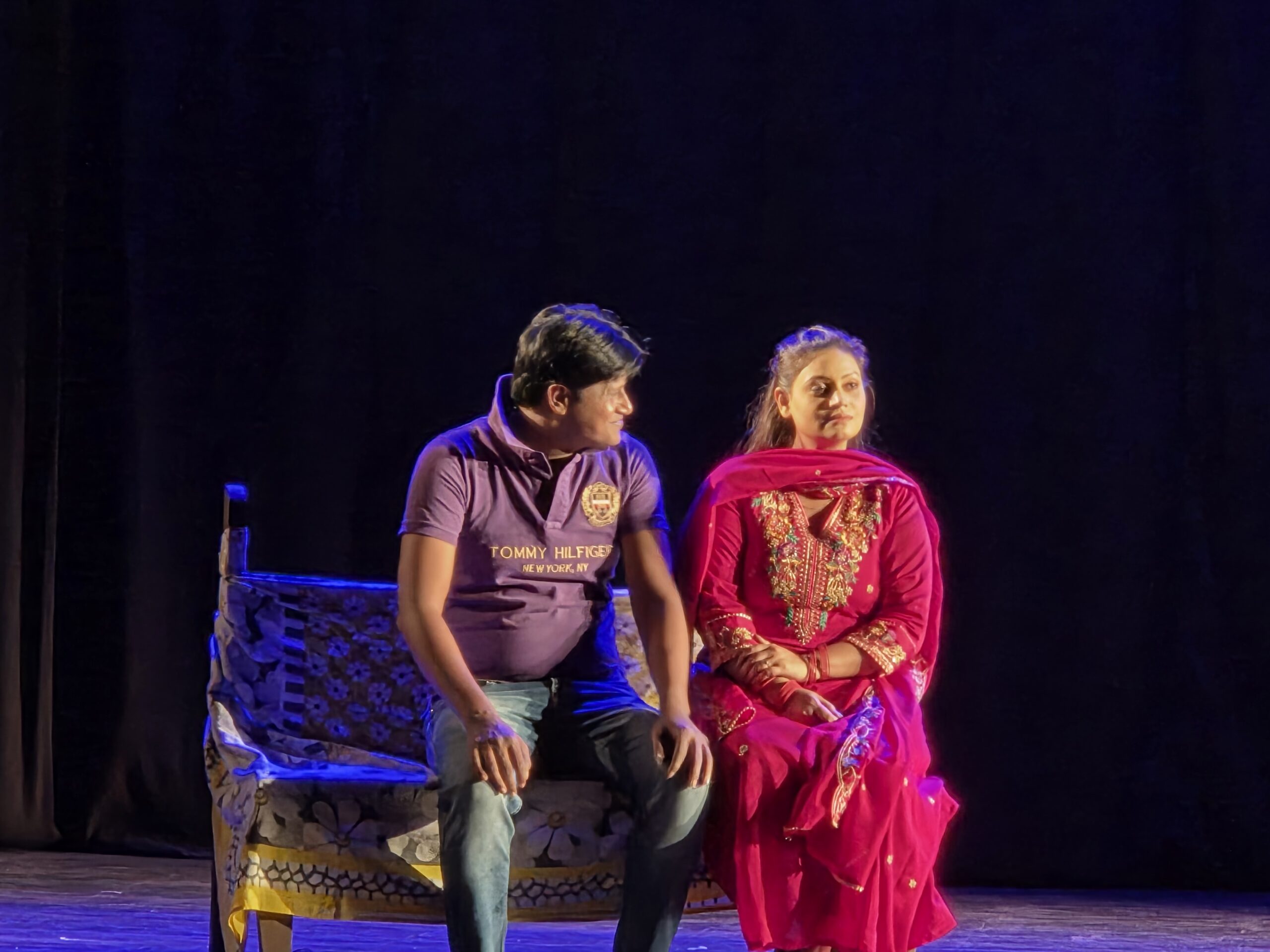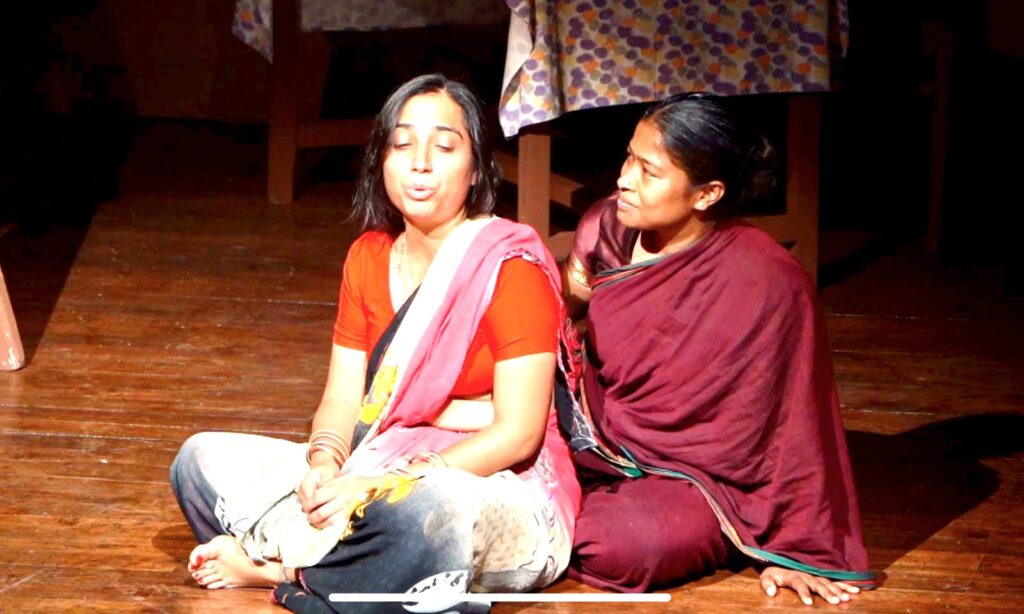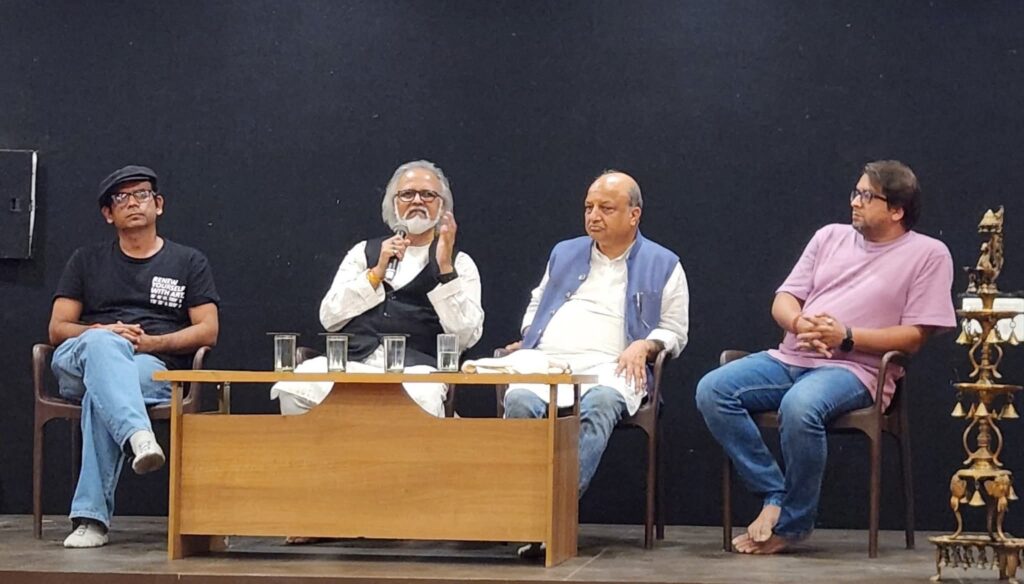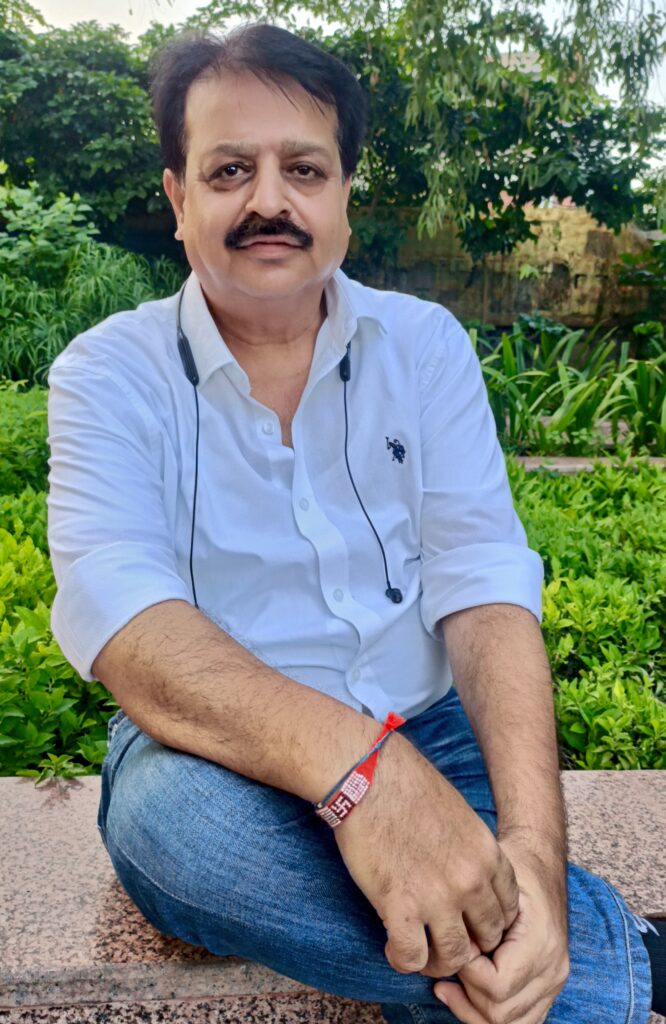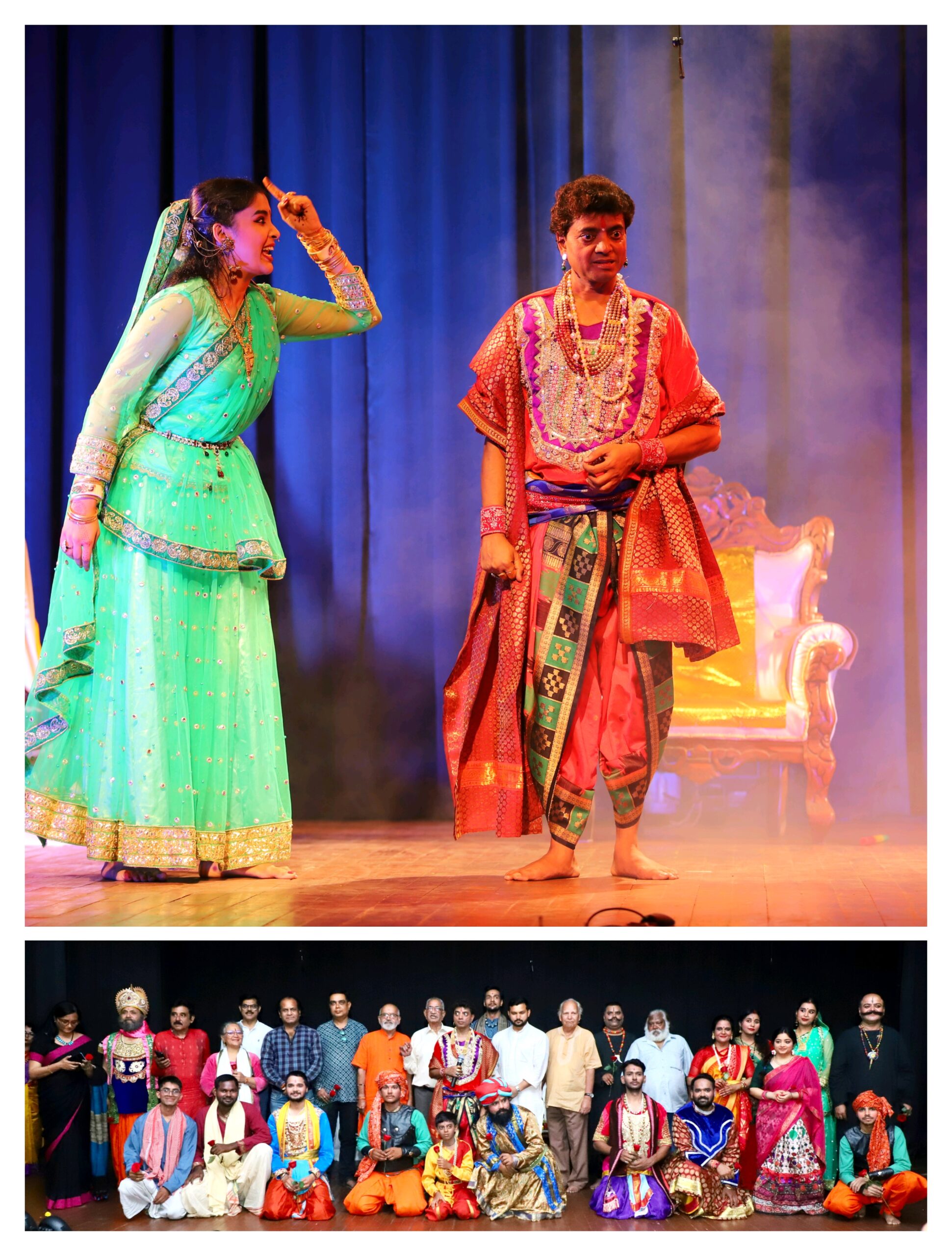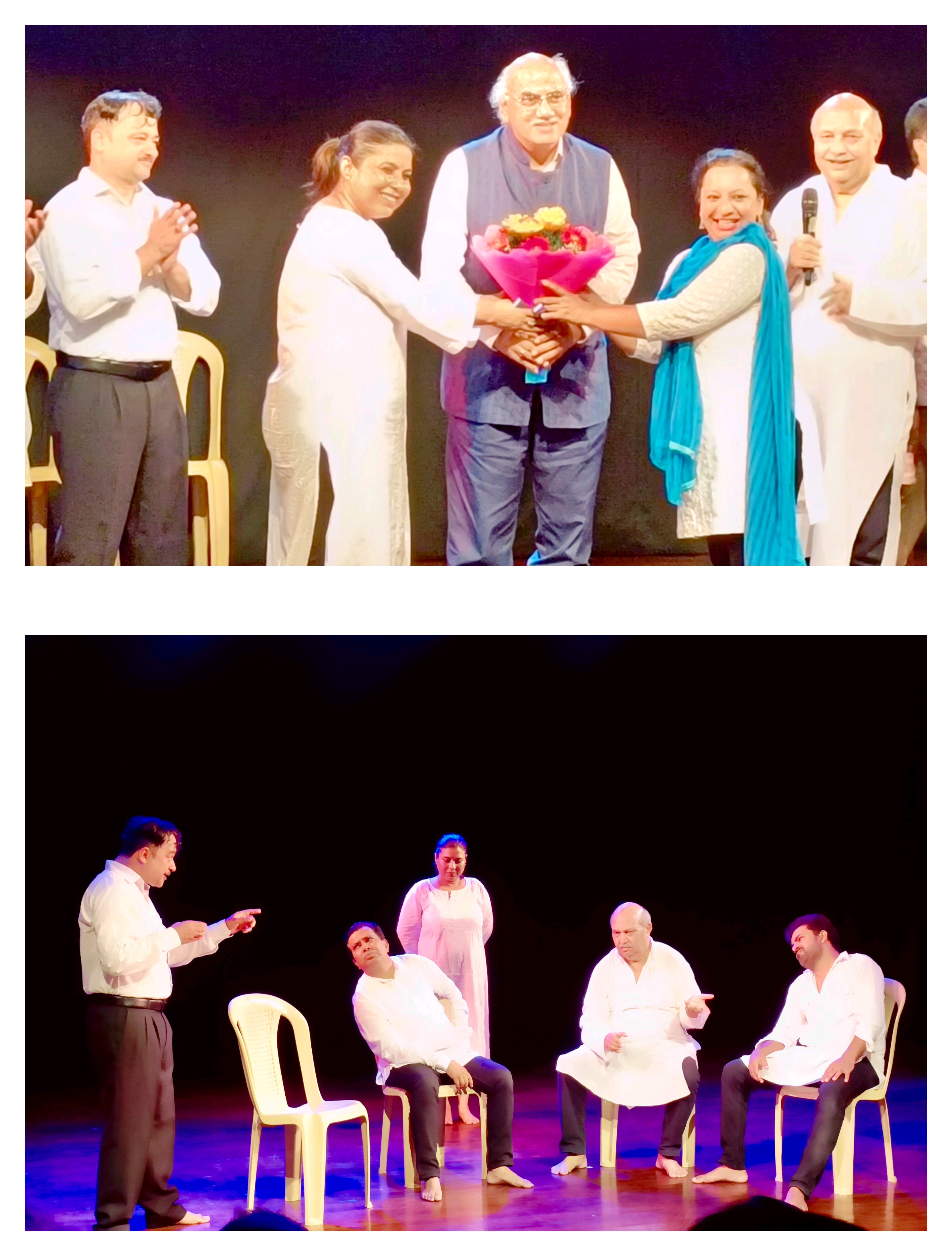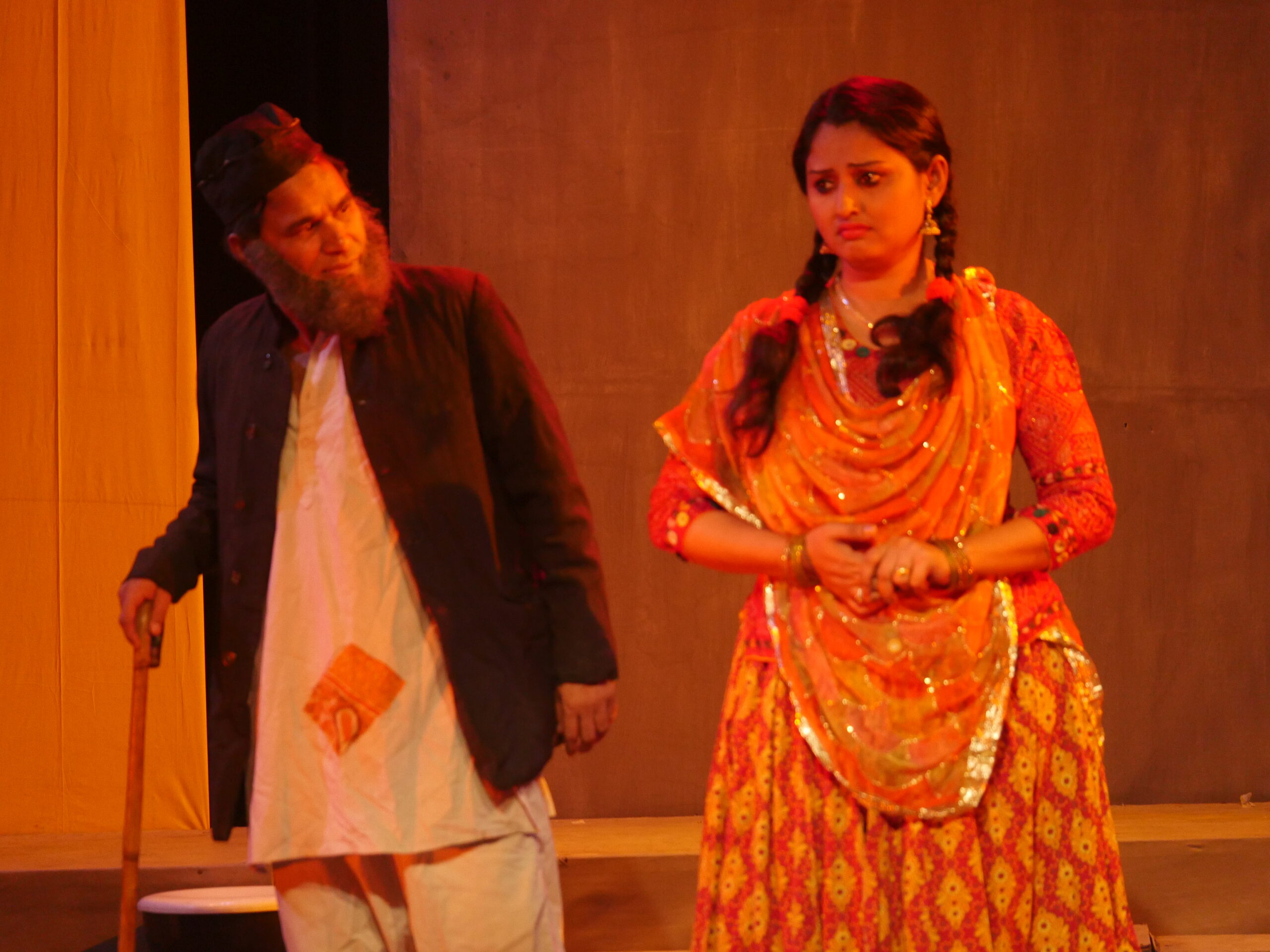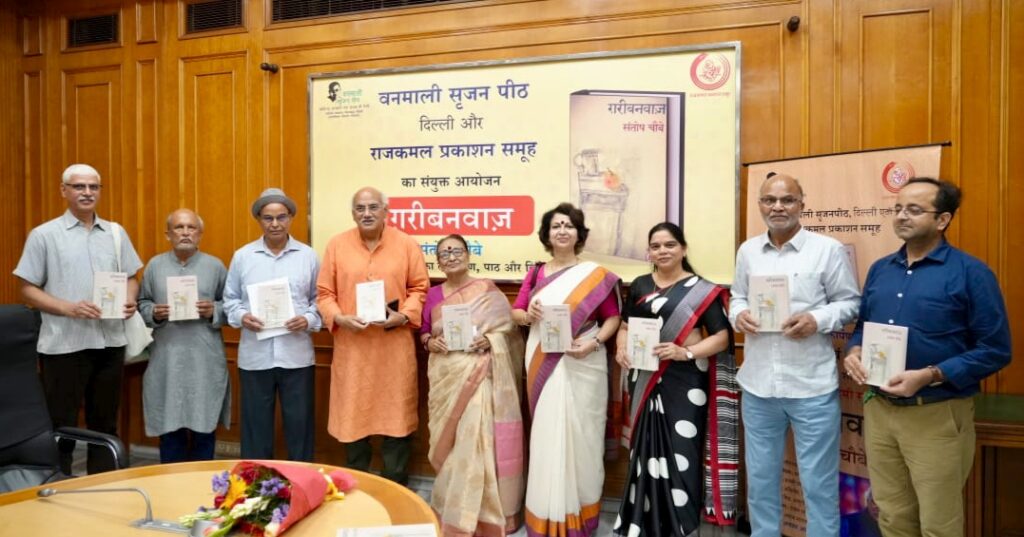शुद्धता
पात्र:
– शुद्धता – आधुनिक, तार्किक सोच वाली किशोरी
– माता – गहन सनातनी, कृष्णभक्त
– पिता – शांत, समझदार
– मुस्लिम बुनकर महिला (अम्मी जान)
– पुजारी / साधु
– भिखारी
– गाँव के लोग, मन्दिर के सेवक
—————————————-
दृश्य 1 : घर का प्रांगण – मूल्य और विवाद
(माता तुलसी के पास दीपक जला रही हैं। पिता जपमाला फेर रहे हैं। शुद्धता मोबाइल पर फास्ट-फूड देखते हुए प्रवेश करती है।)
माता:
शुद्धता, फिर से वही चिकन बर्गर? बिटिया, हम तो सदा से नैष्ठिक वैष्णव हैं। घर में कभी मांस नहीं बना।
शुद्धता:
माँ! सिर्फ इसलिए कि आप खाने से परहेज़ करती हैं, मैं क्यों करूँ? मैं अपनी पसंद की चीज़ें क्यों न खाऊँ?
पिता:
बिटिया, हम तुझे रोक नहीं रहे। बस इतना कह रहे हैं— तू जो भी करे, नम्रता और समझ के साथ करे।
शुद्धता:
पर क्यों? भगवान को मेरी थाली से क्या लेना-देना? क्या वह सच में खाने से नाराज़ होता है?
माता:
जब तू ऐसा कहती है न शुद्धता… लगता है जैसे हमारी श्रद्धा पर प्रश्न उठा रही है।
शुद्धता:
माँ, मैं किसी की श्रद्धा को चोट नहीं करती। बस… मैं अपनी राह खुद चुनना चाहती हूँ।
पिता:
शुद्धता… तू कुछ दिन वृन्दावन चली जा। वहाँ की भूमि, वहाँ की हवा, सब संदर्भ सिखाती है।
—————————————-
दृश्य 2 : वृन्दावन – बुनकर महिला का घर
(शुद्धता आश्चर्य से घर को देखती है। रंग-बिरंगे वस्त्र, मोतियों की झालरें। मुस्लिम महिला—अम्मी जान—मुस्कुरा कर देखती है।)
अम्मी जान:
आओ बेटी। कुछ ढूँढ रही थीं?
शुद्धता:
आप… ये सब? ये तो ठाकुरजी के वस्त्र हैं!
अम्मी जान:
हाँ बेटी। हमारे घर में तीन पीढ़ियों से यह सेवा चल रही है। यहाँ कोई मांस नहीं पकता। हम मानते हैं— सेवा में पवित्रता ही सौंदर्य है।
शुद्धता:
लेकिन… मैं तो मानती हूँ यह सब बस “लोगों की अपनी पसंद” है।
अम्मी जान:
ठीक है बेटी। हर इंसान की अपनी राह। पर कभी-कभी प्रेम के लिए हम अपने को सीमित करते हैं— श्रद्धा से।
—————————————-
दृश्य 3 : ठाकुरजी का मंदिर – भिखारी से मुठभेड़
(मंदिर के बाहर भिखारी बैठा है।)
शुद्धता:
बाबा, लो प्रसाद।
भिखारी- मैं आपसे नहीं लूँगा बिटिया। मैंने आपको कल मांस खाते देखा था। ठाकुरजी का दास हूँ। मेरी थाली में वही आता है जो मन को निर्मल करे।
शुद्धता- तुम पक्षपात कर रहे हो? क्या तुम्हे लगता है की मेरा बहिष्कार करनेसे तुम्हारे ठाकुरजी प्रसन्ना हो जायेंगे? भगवान् यदि पक्षपाती हैं तो फिर तो और क्या कहना. भूके हो सुबह से मगर मेरे हाथ का नहीं खाओगे!
भिखारी- यह मेरा नियम है.
शुद्धता- भाड़ में जाओ. नियम के नाम पर ज़िद है और कुछ नहीं. मृत्यु को गले लगाने की ज़िद है तुममे.
भिखारी- यही सही. ठाकोरजी यदि यही चाहते हैं तो यही सही.
(थोड़ी देर बाद एक आदमी वहां एक कुत्ते को रोटी देकर जाता है. कुत्ता उसे नहीं खता. भिखारी जाकर लेकर खा लेता है.)
भिखारी- ( शुद्धता की और देखते हुए) ठाकोरजी, आज आपने एक रोटी देकर मेरे संकल्प की लाज रख ली.
जब तक मन में विनम्रता नहीं, तब तक कोई प्रसाद भी स्वीकार नहीं करता।(शुद्धता- बिना कुछ बोले वहां से चली जाती है.)
—————————————-
दृश्य 4 : ठाकुरजी का मंदिर – पुजारी से प्रश्न
शुद्धता:
पुजारी जी, क्या मांस खाना पाप है?
पुजारी: (मुस्कराकर)
उत्तर तेरे भीतर है।
शुद्धता:
बहुत बढ़िया कूटनीति! अगर भगवान के खाने की “पसंद-नापसंद” है तो क्या वे पक्षपाती हैं?
पुजारी:
जा, ठाकुरजी को भोग लगा दे। वहीं उत्तर मिलेगा।
—————————————-
दृश्य 5 : भोग लगाते समय चमत्कार
(शुद्धता थाली उठाती है—दो बार थाली गिर जाती है।)
शुद्धता: (रोते हुए)
भगवान मुझे स्वीकार क्यों नहीं कर रहे?
पुजारी:
भगवान पक्षपाती नहीं। तेरे भीतर का अहंकार तुझे अस्वीकार कर रहा है। तू सबको यह सिद्ध कर रही थी कि “मैं सही हूँ।” यही तेरा पाप है, भोजन नहीं।तुमने सबपर अपनी इच्छा थोप दी. तुम सबको यह समझाना चाहती हो की ईश्वर को शाकाहारी और मांसाहारी से कोई फ़र्क़ नहीं पड़ता किन्तु तुम्हारा तरीका गलत है. तुम चाहती नहीं की कोई तुमपर कोई नियम लगाए किन्तु तुम सबपर नियम लगाना चाहती हो! क्या यही आधुनिकता है?
—————————————-
दृश्य 6 : आत्मबोध और वापसी
(शुद्धता घर लौटती है।)
माता:
कैसी थी यात्रा?
शुद्धता:(जवाब में बस इतना ही कहते हुए) धर्म है — सम्मान और संतुलन।यह यात्रा केवल मेरे तन की शुद्धता नहीं थी, मन की शुद्धता के लिए भी थी माँ…

धन्यवाद ठाकुरजी… मुझे शुद्धता का वास्तविक अर्थ सिखाने के लिए।
—————————————-
“धर्म का सार त्याग में नहीं, विनम्रता में है। भोजन की शुद्धि से पहले मन की शुद्धि आवश्यक है।”
